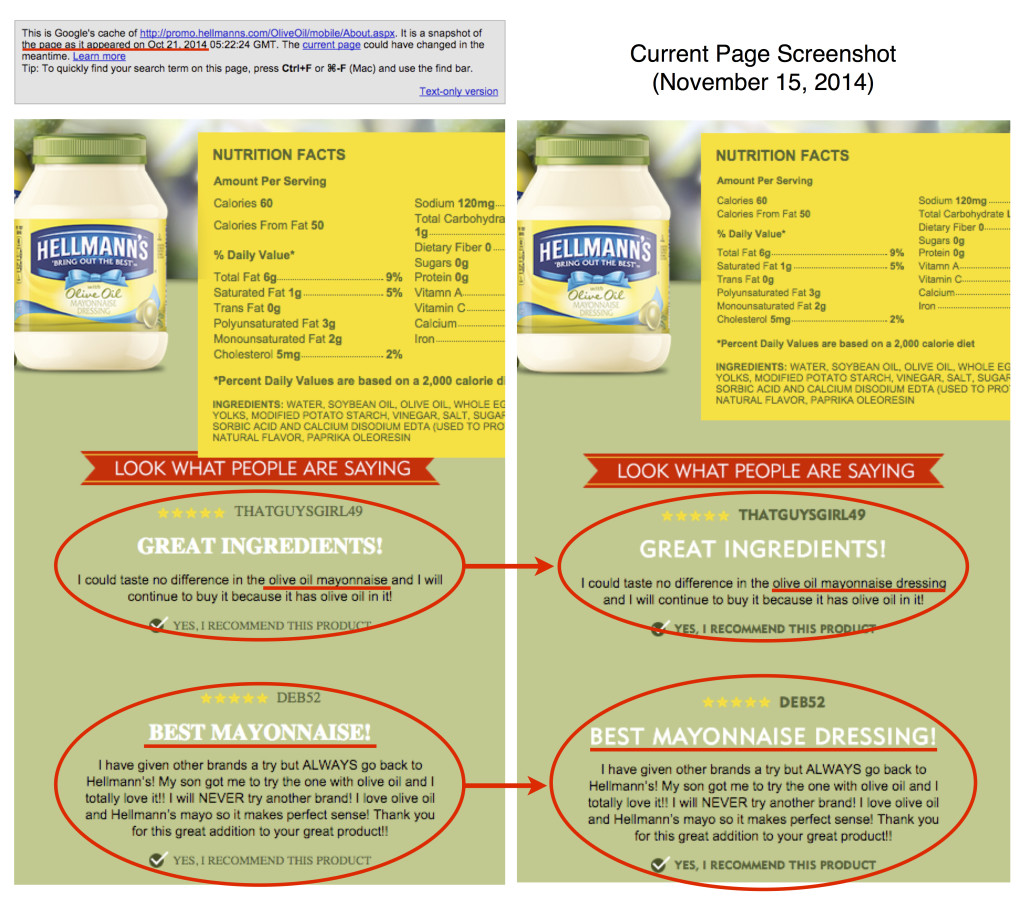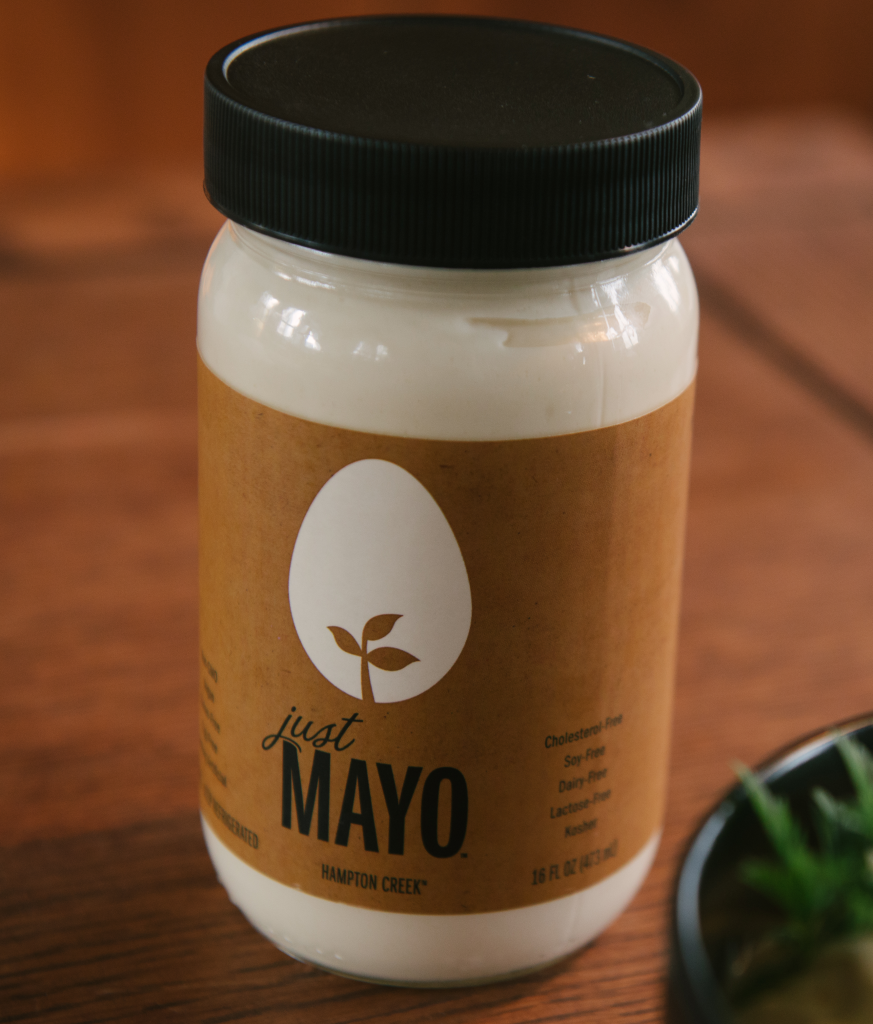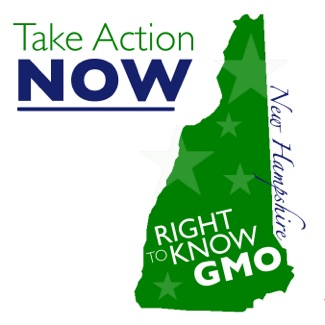
Posts Tagged ‘FDA’
Posted on Wednesday, September 2nd, 2015 by Michele Simon
Potential legal violations uncovered in secret PR effort to damage egg-free competitor
Hundreds of pages of disclosed communications from the American Egg Board reveal a coordinated two-year plan to undermine and attack Hampton Creek, the San Francisco-based food company, seen as a “threat” and “major crisis” to the egg industry.


One of the most important ways that industrial animal agriculture promotes its products is through Congressionally-mandated “check
And yet, USDA’s recent response to a Freedom of Information Act request reveals a number of highly questionable activities that likely violate federal law. The documents (summarized here) are mostly email exchanges between Egg Board executives and others in the egg industry, or with PR consultants, and reveal a disturbing pattern of attacks on Hampton Creek over a two-year period from 2013-2014. (There’s no indication that the campaign has stopped.)
As I documented last fall, Hampton Creek’s early success has touched a nerve in the industrial food industry. These documents show that the lawsuit by Unilever over the start-up’s Just Mayo product was child’s play compared to the Egg Board’s activities. Below is a summary of the most egregious communications.
Continue reading →
Posted in Food Law, Food Policy, Industry Tactics | Tagged: Eggs, FDA, Hamtpon Creek, Just Mayo, Unilever, USDA | Michele on Google+ | View/Add Comments (3) |
Posted on Sunday, November 16th, 2014 by Michele Simon
Big Mayo scrubbing Hellmann’s website to cover up deception after filing lawsuit against Hampton Creek

Screen shots of Hellmann’s promotion showing altered customer reviews. (Click for larger resolution.)
Last week I wrote about the negative PR backlash against global giant Unilever for its desperate lawsuit against Hampton Creek over Just Mayo, a new product made without eggs that is quickly stealing market share from twin brands Hellmann’s and Best Foods, the market leaders. Most corporations shy away from filing these sorts of competitor lawsuits and Unilever is about to find out why.
Continue reading →
Posted in Food Law, Food Policy, Industry Tactics | Tagged: FDA, Hampton Creek, Just Mayo, Unilever | Michele on Google+ | View/Add Comments (83) |
Posted on Sunday, November 9th, 2014 by Michele Simon
Food Giant Unilever suing Hampton Creek for daring to offer a cruelty-free and sustainable alternative, whining that: “Just Mayo already is stealing market share from Hellmann’s”

Business school pop quiz: What’s a $60 billion global behemoth to do when a San Francisco start-up cuts into their profits? If answers like “innovate your products” or “hire a better marketing team” come to mind, you must not work at Unilever. That company’s response to competition is to take them to court. Unilever owns many top food brands such as Best Foods (and is also the largest deodorant maker in the world). The company is suing Hampton Creek for unfair business practices and false advertising, claiming their plant-based product called Just Mayo is deceptive to consumers because it doesn’t contain eggs. Actually that’s the whole point: to not use eggs.
Continue reading →
Posted in Big Food, Food Policy, Uncategorized | Tagged: FDA, Unilever, Vegan | Michele on Google+ | View/Add Comments (86) |
Posted on Tuesday, October 28th, 2014 by Michele Simon
The natural products business is booming. By some industry estimates, retail sales topped an eye-popping $100 billion last year, with nearly 60 percent coming from food. No wonder more food marketers are labeling their products — from Pepsi to Cheetos — natural. But what does the term actually mean?
Despite the term’s popularity — or because of it — there is no official definition of “natural.” With the potential to deceive consumers, the issue is now reaching a breaking point. The proposed solutions from trade groups, lawyers and government agencies range from defining the term to suing over it to ignoring it. Some consumer-advocacy organizations are even calling for a complete ban on the use of “natural” in labeling. But such disparate approaches won’t help shoppers become any less confused and may even make the problem worse.
Read rest at Al Jazeera America ….
Posted in Big Food, Food Policy, Industry Tactics | Tagged: advertising regulation, FDA, GMO labeling, GMOs, junk food, trade groups, voluntary self-regulation | Michele on Google+ | View/Add Comments (0) |
Posted on Tuesday, October 21st, 2014 by Michele Simon
These days health-conscious consumers are increasingly seeking out food products not only with fewer ingredients and a “clean label”, but also foods produced in a manner that minimizes harm to the environment, among other ethical business practices. And it’s not enough to claim your product is healthy or sustainable with just words; to get that much-needed boost in a highly competitive marketplace, many food companies are spending the extra money to obtain third-party certification for various claims.
Continue reading →
Posted in Food Law, Food Policy | Tagged: FDA, GMO labeling, GMOs, USDA | Michele on Google+ | View/Add Comments (0) |
Posted on Tuesday, September 9th, 2014 by Michele Simon
Food and Beverage Marketing: Beyond Compliance
Over the past 18 years as a lawyer and public health advocate, I have scrutinized the ways that food companies use misleading or illegal marketing to unfairly influence consumers. I will continue to call out these deceptive practices as long as the industry continues to use them.
Continue reading →
Posted in Food Law, Food Policy | Tagged: FDA, USDA, voluntary self-regulation | Michele on Google+ | View/Add Comments (0) |
Posted on Thursday, March 20th, 2014 by Michele Simon
The food and beverage giant’s new sweetener causes confusion with claims of FDA approval
For years, the processed-food industry has searched in vain for a low-calorie sweetener that actually tastes good, let alone one that retains the flavor profile of the underlying product. In 2010, the food and beverage giant PepsiCo formed an agreement with the flavor company Senomyx to “focus on the discovery, development and commercialization of sweet enhancers and natural high-potency sweeteners.” That partnership appears to be paying off; there is tremendous profit potential for both companies, given the recent dips in soda sales. Which makes the deceptive nature of a recent press release that much more troubling. Read rest at Al Jazeera America …
Posted in Big Food, Food Law, Food Policy, Food Safety, Industry Tactics | Tagged: Big Food, Big Soda, Center for Food Safety, FDA, food safety, junk food, soda, soft drinks | Michele on Google+ | View/Add Comments (0) |
Posted on Wednesday, March 5th, 2014 by Michele Simon
Last week, with an assist from first lady Michelle Obama, the Food and Drug Administration announced a set of proposed improvements — the first in 20 years — to the nutrition facts label found on most food packages. Read rest at Al Jazeera America …
Posted in Big Food, Industry Tactics, Public Health | Tagged: advertising regulation, Big Food, deceptive health claims, FDA, junk food, public relations, voluntary self-regulation | Michele on Google+ | View/Add Comments (0) |
Posted on Monday, January 20th, 2014 by Michele Simon
 The Grocery Manufacturers Association may soon be coming to your state capital. Take note of their rap sheet before you let them in the door.
The Grocery Manufacturers Association may soon be coming to your state capital. Take note of their rap sheet before you let them in the door.
In secret documents that I uncovered in November, the Grocery Manufacturers Association (aka food industry lobbyists) laid out its five-point plan for opposing the labeling of foods containing genetically-modified organisms or GMOs. First on the list: “To oppose all state efforts that would impose mandatory labels” including state legislation. With more than 20 states having introduced state bills to require GMO labeling, the junk food lobby has its work cut out for it. But they’ve wasted no time as the 2014 legislative session gets underway, starting with targeting the New Hampshire capital.
Continue reading →
Posted in Big Food, Food Policy, Food Safety, Industry Tactics | Tagged: Big Food, California Prop 37, FDA, GMO labeling, GMOs, Grocery Manufacturers Association, I-522, junk food | Michele on Google+ | View/Add Comments (1) |
Posted on Friday, January 17th, 2014 by Michele Simon
The food lobby wants a voluntary federal approach to GMO labeling, but we should let the states have their way, for now.
Those advocating for improvements to our broken food system have, of late, had little to crow about. However, in recent years, a growing movement to label foods made with genetically modified organisms (GMOs) has begun showing real promise. While the food industry continues to make unsubstantiated and deceptive claims that GMO labels would be confusing or increase food costs, polls show that more than 90 percent of Americans favor GMO labeling. And the states are listening. At least 20 states have proposed legislation requiring that genetically engineered foods be labeled. Read rest at Al Jazeera America ….
Posted in Big Food, Food Policy, Food Safety, Industry Tactics | Tagged: Big Food, California Prop 37, FDA, GMO labeling, GMOs, Grocery Manufacturers Association, I-522, Monsanto, PepsiCo, trade groups, voluntary self-regulation | Michele on Google+ | View/Add Comments (0) |

















